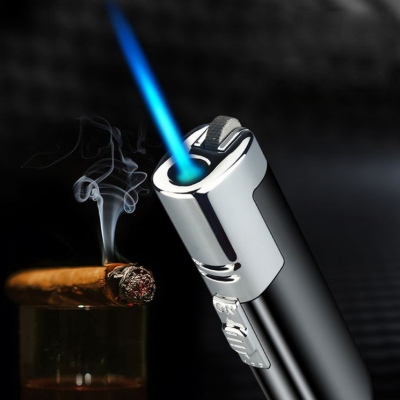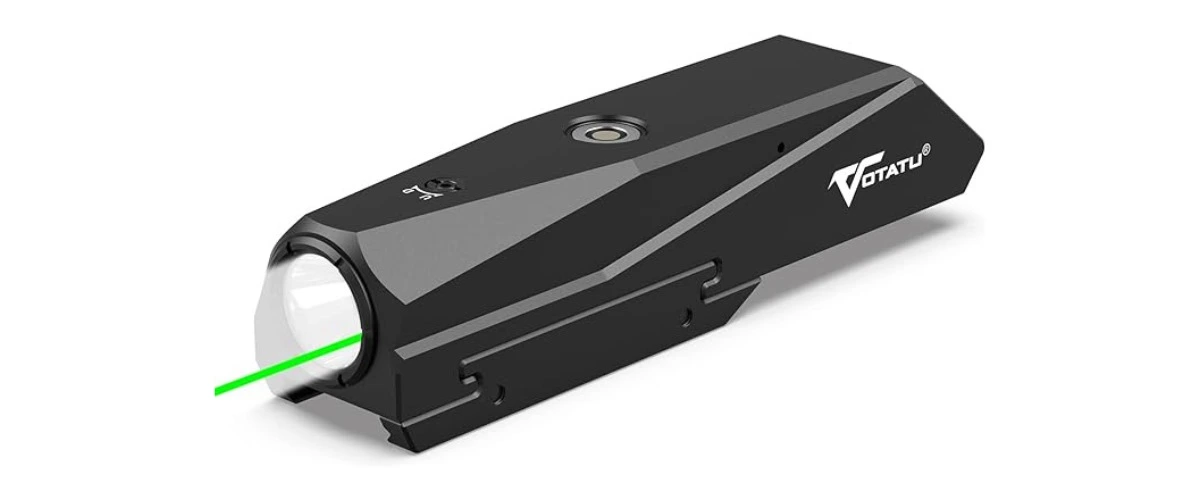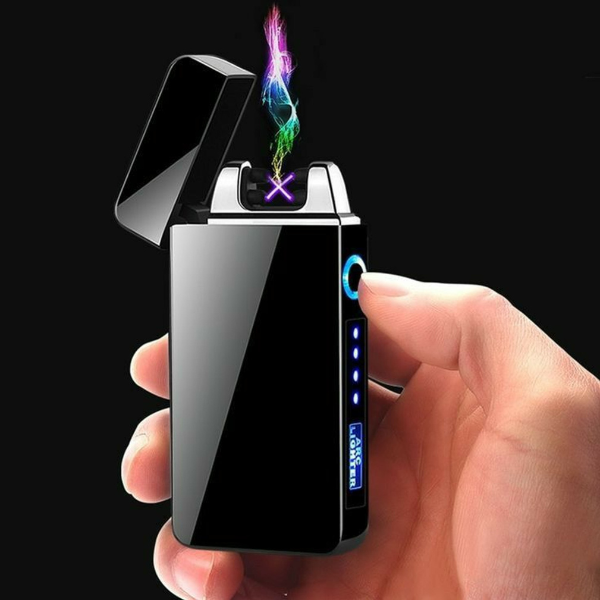We get commissions for purchases made through links in this post. View our Affiliate Disclaimer
New development in the field of fire-starting has been the popularity of laser lighters in recent years. These cutting-edge gadgets are becoming more and more well-known due to their remarkable capabilities and cutting-edge technology. This article will cover the workings, features, advantages, and possible uses to shed light on their increasing importance for igniting fires.
Description of Laser Lighter
As we step into an era of technological evolution, the humble lighter undergoes a remarkable transformation with the advent of laser lighters. This innovative invention offers a novel method of igniting a fire by combining cutting-edge optics with precision engineering.
Key components
It has the several key components:
- Laser Diode: This is the device’s core, where the laser beam is released. Laser diodes are semiconductor devices that use stimulated photon emission to produce extremely focused light.
- Power Source: Rechargeable lithium-ion batteries or USB-rechargeable cells are commonly used in them. The electrical power required to turn on the laser diode is supplied by these energy sources.
- Safety Mechanisms: They come with a few safety measures, including proximity sensors, timeout functions, and lock mechanisms, to prevent unintentional activation and guarantee user safety.
- Casing and Design: Their external shells are frequently made of sturdy materials like stainless steel or aluminum, which offer both visual appeal and protection. To accommodate a wide range of consumer tastes, modern designs may include complex patterns or sleek, minimalist aesthetics.
How it Works?
The basic working principle of these lighters differs from that of conventional lighters. Their central component is a battery-operated laser diode that produces a concentrated beam of light. Target materials, such as paper or tinder, are exposed to this beam, which quickly heats them and ignites them. In contrast to traditional lighters, they use more concentrated light power to ignite fuel rather than burning it.
Features
- Advanced Ignition Technology: They do not require the usual fuel combustion method since they use a powerful laser diode to precisely burn materials.
- Windproof and Weather-Resistant Design: They are perfect for outdoor use because of their weather-resistant design, which allows them to function even in inclement weather.
- Long Battery Life: They have long battery lives thanks to effective power management technologies, which guarantee dependable operation for longer periods.
- Safety Mechanisms: Built-in safety measures improve user protection and avert mishaps, such as child-lock mechanisms and automatic shut-off.
- Eco-Friendly Operation: They provide a sustainable substitute for conventional lighters by doing away with the requirement for throwaway fuel cartridges, thereby lessening their environmental effect.
Specifications
- Energy Source: Lithium-ion battery that can be recharged.
- Power Output: Variable laser intensity for different types of ignition requirements.
- Construction: Sturdy materials with an ergonomic layout for ease of use.
- Dimensions: Small and lightweight for usage when traveling.
- Certifications for safety: Meeting global requirements for consumer electronics safety
Pros
- For dependable fire starting, use precise igniting
- Weather and wind-resistant design
- Long battery life for continuous use
Cons
- greater starting price when compared to conventional lighters
Potential Applications
Laser lighters’ adaptability and dependability make them suitable for a wide range of sectors and businesses.
- Consumer Electronics: By integrating laser lighters into portable electronic devices like e-cigarettes, smartphones, and outdoor equipment, manufacturers can provide consumers with an environmentally responsible and convenient way to ignite their electronics.
- Emergency Preparedness: Laser lighters can be a dependable backup for lighting fires, signaling for aid, or giving illumination in emergency scenarios where traditional lighters may fail owing to adverse conditions or fuel depletion.
- Industrial and Commercial Use: Laser lighters are useful in fields like manufacturing, soldering, and welding where efficient and accurate ignition is necessary to guarantee worker safety.
- Space Exploration: Laser lighters have great potential for space exploration missions where conventional lighting methods may provide safety issues or logistical challenges due to their flameless operation and endurance.
Advantages of Laser Lighters
Laser lighters are appealing because of their many advantages such as:
- They are perfect for outdoor use because of their water and wind-resistant construction, which guarantees dependable ignition even in harsh weather.
- Additionally, laser lighters provide a steady flame temperature that maximizes burning and reduces waste. Their extended battery life and energy-efficient functioning offer a sustainable substitute for single-use lighters.
- Furthermore, integrated safety measures including an automated shut-off mechanism improve user safety and prevent mishaps.
Safety Considerations and Precautions
Despite the amazing characteristics of laser lighters, care must be taken to guarantee safe usage.
- Users should avoid pointing these devices at delicate objects or their eyes due to their strong beam.
- To reduce the chance of injury and avoid unintentional activation, handling, and storage must be done properly.
- Users can responsibly reap the benefits of laser lighters by following suggested recommendations.
Comparison to Traditional Lighters
When comparing laser lighters to conventional lighters, the following list of their unique benefits becomes clear:
- Performance: Laser lighters ensure dependable fire starting even in unfavorable weather circumstances like wind or rain by providing accurate ignition by a concentrated beam of light. Conventional lighters, on the other hand, depend on the burning of fuel, which can be problematic in windy or damp conditions and result in inconsistent performance.
- Safety: To reduce the possibility of mishaps or abuse, laser lighters usually have built-in safety measures including child-lock capabilities and automated shut-off mechanisms. Such cutting-edge safety elements may not be included in traditional lighters, which raises the risk of burns or fires if used improperly.
- Cost: Although laser lighters may initially cost more than traditional lighters, over time, their extended lifespan and rechargeable design may lead to cost savings. Conventional lighters have higher initial costs since they need to be replaced or refilled more frequently.
- Impact: Because they do not require throwaway fuel cartridges, laser lighters are a more environmentally friendly option than traditional lighters. Laser lighters help to a more environmentally friendly method of igniting fires by lowering waste and dependency on non-renewable resources.
- Versatility: Lighters with lasers are adaptable devices that can be used for more than just igniting candles or cigarettes. They can be used for emergency fire starting, scientific investigations, and outdoor activities like hiking and camping. Laser lighters are more precise and versatile than traditional lighters, which are mainly made for simple ignition tasks.
Final Thoughts
To sum up, laser lighters represent a major development in ignition technology and provide a more environmentally friendly, dependable, and safe substitute for conventional lighters. Laser lighters are ideal for a variety of applications, including everyday use, outdoor activities, and emergency scenarios. Their flameless operation, windproof design, and long-lasting rechargeable batteries further contribute to their versatility. Laser lighters have the potential to revolutionize ignition in the modern world by becoming an essential tool for both individuals and industries if sustainability and innovation remain our top priorities.
Product Headline Goes Here
Product Headline Goes Here



